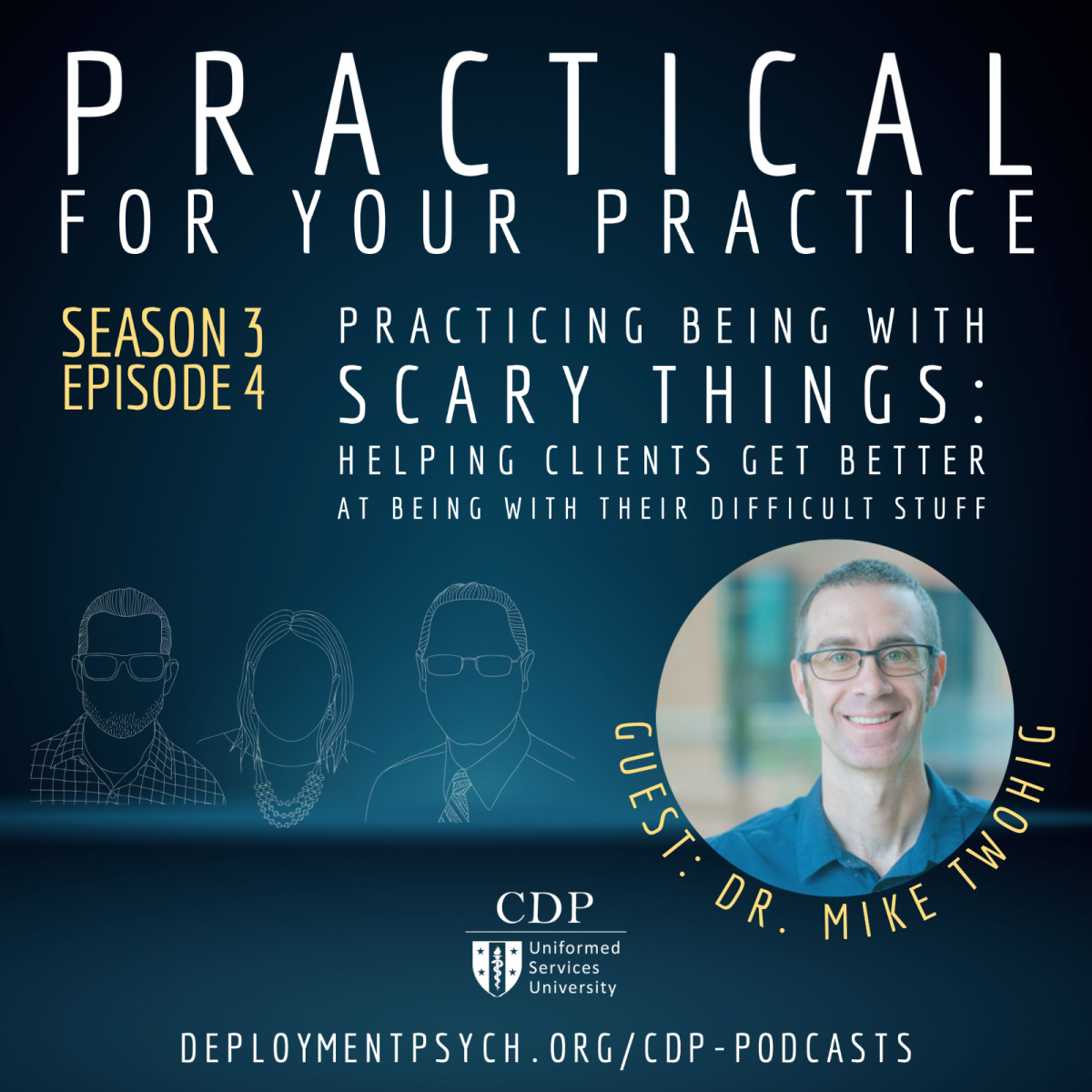 Episode 4, Season 3: Practicing Being with Scary Things - Helping Clients Get Better at Being With Their Difficult Stuff
Episode 4, Season 3: Practicing Being with Scary Things - Helping Clients Get Better at Being With Their Difficult Stuff
Guest: Dr. Mark Twohig
Exposure-based interventions are some of the most powerful tools that therapists can offer to their clients, especially those who struggle with anxiety. However, there are different models of exposure with different proposed mechanisms and different desired outcomes.
In this episode, anxiety disorders and Acceptance and Commitment Therapy expert Mike Twohig exposes us to some useful ways to help clients get better at being with their difficult stuff.
 |
 |
 |
Show Notes:
Mark Twohig, Ph.D. is a licensed psychologist in the state of Utah and a Professor of Psychology at Utah State University, where he co-runs the ACT Research Group (with Dr. Levin). He received his B.A. and M.S. from the University of Wisconsin-Milwaukee, his Ph.D. from the University of Nevada, Reno, and completed his clinical internship at the University of British Columbia Hospital. He is past-President of the Association of Contextual Behavioral Science, the organization most associated with Acceptance and Commitment Therapy (ACT). His research focuses on the use of ACT across a variety of clinical presentations with an emphasis on obsessive-compulsive and related disorders. He has published over 200 scholarly works, including five books, with the most recent being Innovations in ACT (with Levin and Krafft) and ACT in Steps (with Levin and Ong). His research has been funded through multiple sources, including the National Institute of Mental Health.
Calls-to-action:
Subscribe to the Practical for Your Practice Podcast
Subscribe to The Center for Deployment Psychology Monthly Email
This podcast is produced by the Center for Deployment Psychology at the Uniformed Services University of the Health Sciences. The views expressed are those of the speakers and do not necessarily reflect the opinions of the Uniformed Services University, the Department of Defense, or the US Government. In addition, reference to any specific company, products, processes, or services does not necessarily constitute or imply endorsement by the Uniformed Services University, the Department of Defense, or the US Government.
